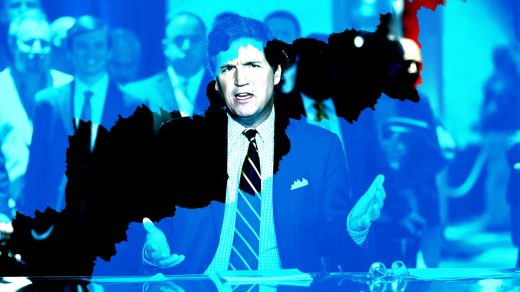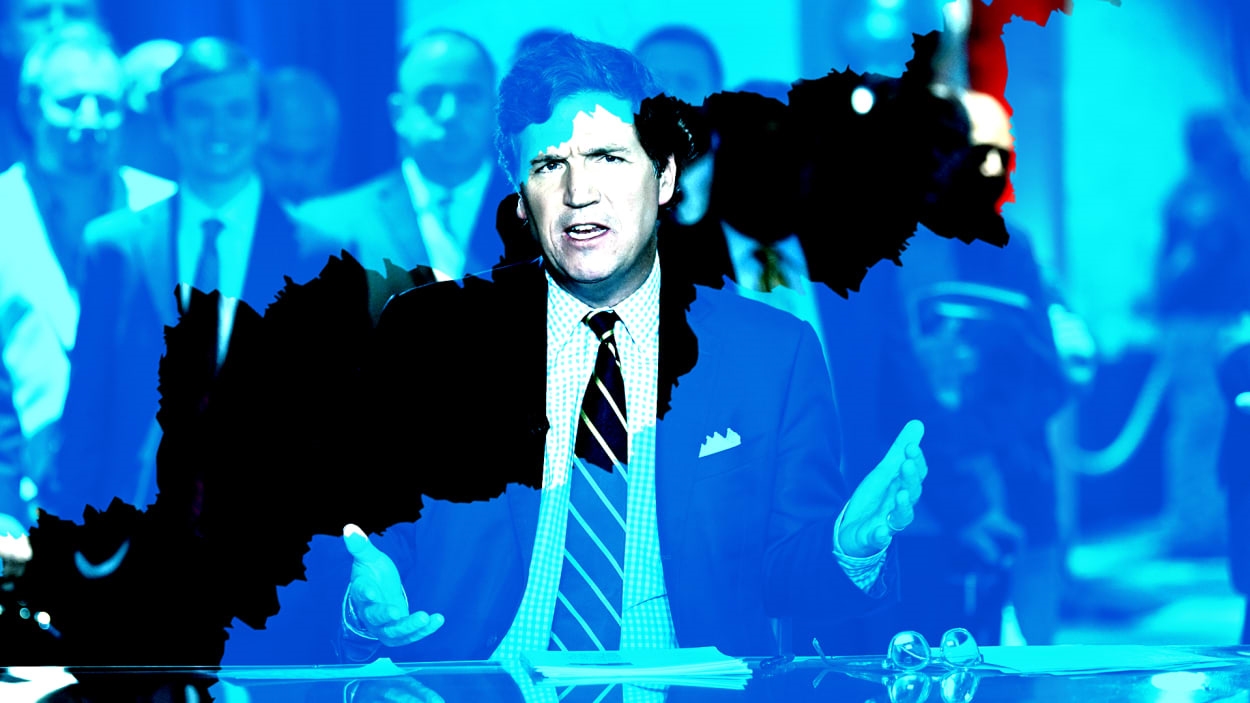Experts: Tucker Carlson’s move to Twitter may turn off users—and advertisers—from the platform
It’s been a busy few weeks for Tucker Carlson. After being fired by Fox News, the controversial TV host announced this week that he would be relaunching his show on Twitter. In response, Twitter owner Elon Musk offered Carlson a positive, if detached, reception, tweeting, “On this platform, unlike the one-way street of broadcast, people are able to interact, critique and refute whatever is said.”
Musk, who announced Thursday that he would be stepping down as CEO in the coming weeks, added that Carlson had not signed a deal with Twitter and would be subject to the same rules as every other user. But the former Fox News host would be welcome, Musk implied—even if it’s likely to further poison the well on Twitter, as some former employees and experts predict it will.
“Musk is on a sinking ship and he’s desperate,” says Melissa Ingle, who was a senior data scientist at Twitter until Musk initiated a round of layoffs in November 2022. Ingle says Musk’s actions to date have served only to turn advertisers away (to wit, an 89% drop between January and March 2023, according to Bloomberg), and that becoming home to controversial figures like Carlson is likely to switch off more people than it attracts.
Musk tried to couch his welcome of Carlson by saying that he hopes others, “particularly from the left, also choose to be content creators on this platform.” But that is little more than lip service, reckons product designer Chris Messina: “Elon may think he’s ‘bothsidesing’ it, but you can’t platform a white supremacist and maintain any semblance of ‘bothsidesing’ in good faith.”
Ingle predicts that in the short term, Twitter may see a small boost to user numbers thanks to Carlson’s presence on the platform. “Social media thrives on engagement,” she says. “More engagement encourages retention but is negatively correlated with quality.” The can’t-turn-away quality of Carlson may initially be sought after by users, and bring their attention to begin with, but in the long run it starts to grate.
Indeed, research from former Facebook and Twitter employee Tom Cunningham shows a negative interaction between engagement and quality of content. “Low-quality content typically hurts retention, and as a consequence platforms often supplement their engagement-based ranking algorithms with a range of proxies for content quality,” Cunningham wrote in his report.
And it’s not just viewers who could be repelled; advertisers may well want to avoid his show too. While Carlson anchored Fox’s most popular program, his time slot was also anathema to advertisers. “Carlson, while he can drive engagement, is highly toxic,” Ingle says. “Advertisers are reluctant to be associated with him.”
The fear is that such a totemic, and polarizing, figure as Carlson arriving sends a signal of the future direction of content on Twitter. “Elon is gravely mistaken if he thinks the majority of users want to have right-wing political content rammed in their face,” asserts Steven Buckley, a lecturer in media and communications specializing in U.S. politics and social media at City, University of London.
In an unrelated development to Carlson’s arrival, a number of Twitter users have complained recently that previously innocuous searches for words like “dog” and “cat” are either autocompleting with phrases that promote animal abuse, or Twitter’s algorithm is showing them videos of that abuse unprompted. Buckley says Twitter is, in other words, “rapidly turning . . . into one of the very worst cesspits of the internet.”
(18)



